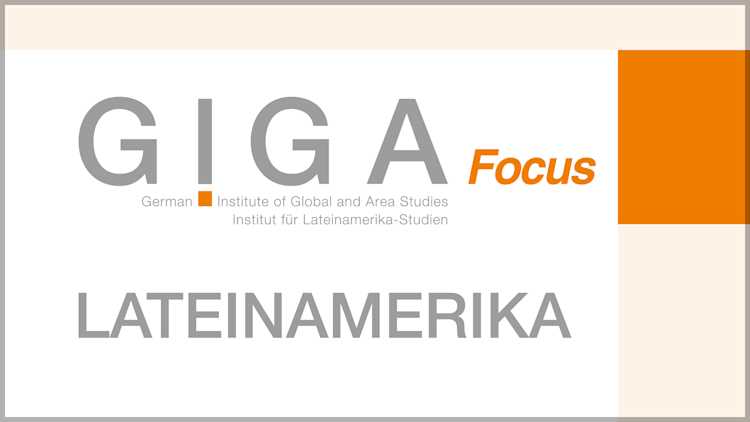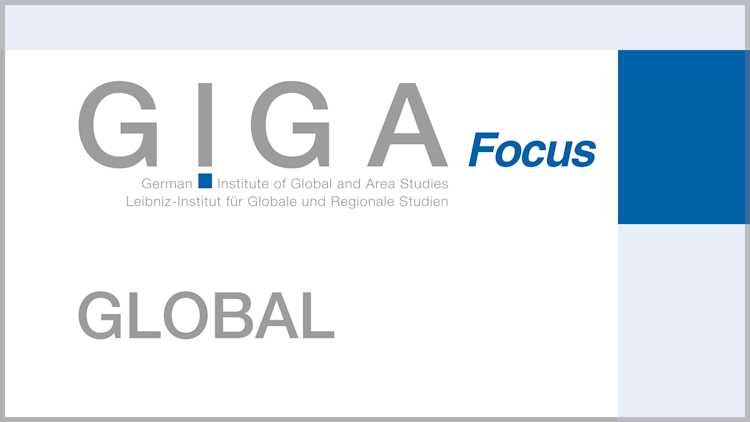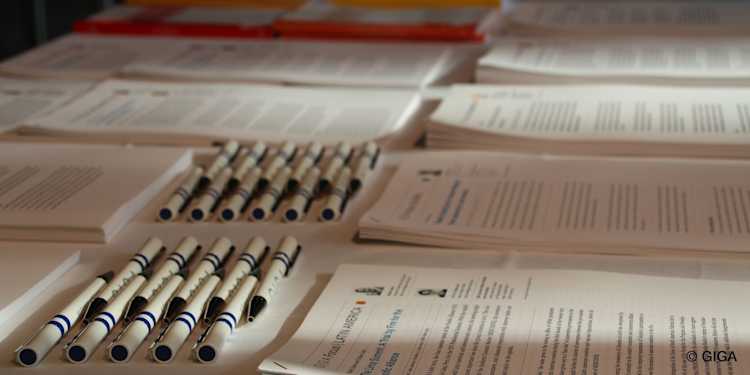- Home
- Publications
- GIGA Focus
- Mercosur oder Pazifik-Allianz: konkurrierende Modelle lateinamerikanischer Integration
GIGA Focus Latin America
Mercosur oder Pazifik-Allianz: konkurrierende Modelle lateinamerikanischer Integration
Number 3 | 2014 | ISSN: 1862-3573
Am 26. März 2014 feierte der „Gemeinsame Markt des Südens“ (Mercosur) sein 23-jähriges Bestehen; ihm gehört neben den Gründungsstaaten Argentinien, Brasilien, Paraguay und Uruguay mittlerweile auch Venezuela an. Die Pazifik-Allianz zwischen Chile, Mexiko, Peru und Kolumbien gründete sich dagegen erst am 6. Juni 2012. Auf ihrem VIII. Gipfeltreffen am 10. Februar 2014 in Cartagena (Kolumbien) beschlossen die Präsidenten die Abschaffung der Zölle für 92 Prozent der zwischen ihren Staaten gehandelten Waren.
Analyse Beide Integrationsbündnisse konkurrieren um die wirtschaftliche Vorreiterrolle in Lateinamerika. Trotz ihres erst kurzen Bestehens weist die Pazifik-Allianz eine größere Dynamik auf. Für die künftige Entwicklung und die außenwirtschaftlichen Beziehungen Lateinamerikas sind beide Bündnisse von großer Bedeutung.
In den Ländern der beiden Regionalbündnisse leben etwa 500 Millionen Menschen und damit fast 85 Prozent der lateinamerikanischen Bevölkerung. Sie erwirtschaften mehr als 91 Prozent des Bruttoinlandsprodukts (BIP) und etwa 92 Prozent der Güterausfuhr Lateinamerikas.
Bezogen auf die makroökonomische Konvergenz – die Angleichung der gesamtwirtschaftlichen Entwicklung in den Mitgliedsstaaten – verfügt die Pazifik-Allianz über bessere Ausgangsbedingungen. Denn obwohl der Mercosur schon sehr viel länger besteht, sind die ökonomischen Unterschiede zwischen seinen Mitgliedsstaaten immer noch beträchtlich.
Bei der Angleichung der Lebensverhältnisse zwischen den beteiligten Ländern – die wirtschaftliche Kohäsion – verzeichnen beide Bündnisse Fortschritte. Differenzen bleiben allerdings bestehen: Im Mercosur gilt dies vor allem für das Wirtschaftswachstum der Mitgliedsstaaten, in der Pazifik-Allianz für die Arbeitslosenraten.
Beide Integrationsräume unterscheiden sich auch hinsichtlich des Anteils ausländischer Direktinvestitionen sowie der Entwicklung der Leistungsbilanzen.
Footnotes
How to cite this article
González Sánchez, Víctor M. (2014), Mercosur oder Pazifik-Allianz: konkurrierende Modelle lateinamerikanischer Integration, GIGA Focus Latin America, 3, Hamburg: German Institute for Global and Area Studies (GIGA), http://nbn-resolving.de/urn:nbn:de:0168-ssoar-388205
Imprint
The GIGA Focus is an Open Access publication and can be read on the Internet and downloaded free of charge at www.giga-hamburg.de/en/publications/giga-focus. According to the conditions of the Creative-Commons license Attribution-No Derivative Works 3.0, this publication may be freely duplicated, circulated, and made accessible to the public. The particular conditions include the correct indication of the initial publication as GIGA Focus and no changes in or abbreviation of texts.
The German Institute for Global and Area Studies (GIGA) – Leibniz-Institut für Globale und Regionale Studien in Hamburg publishes the Focus series on Africa, Asia, Latin America, the Middle East and global issues. The GIGA Focus is edited and published by the GIGA. The views and opinions expressed are solely those of the authors and do not necessarily reflect those of the institute. Authors alone are responsible for the content of their articles. GIGA and the authors cannot be held liable for any errors and omissions, or for any consequences arising from the use of the information provided.








